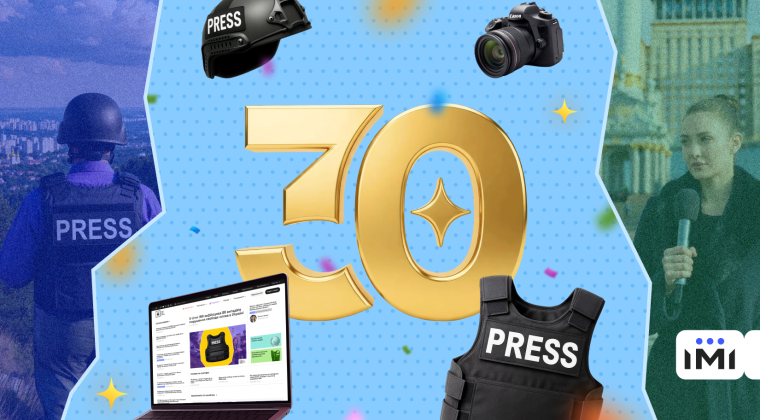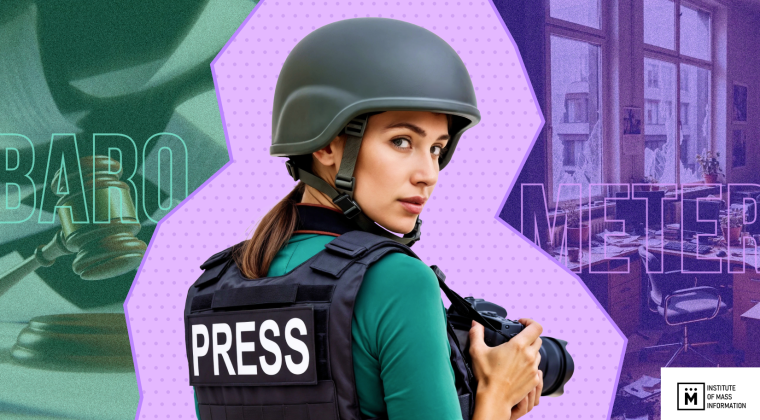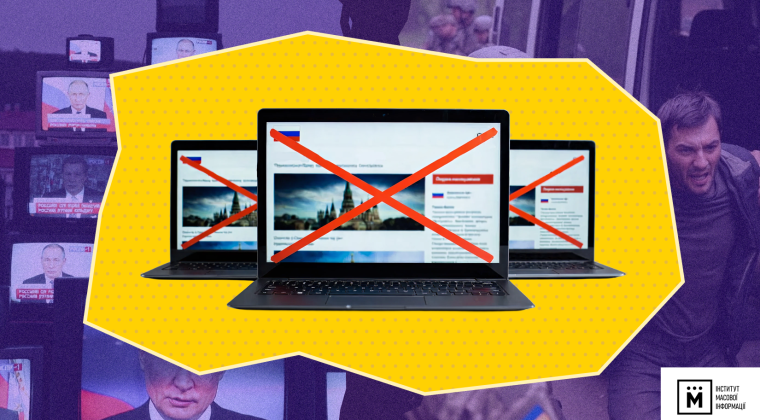The election campaign revealed three major problems of the media sphere in Ukraine: influence of media owners on the content of media they control, rise of disguised political campaigning, and Russia’s influence via pro-Russian media.
In the context of this survey, IMI recorded a serious increase in the number of ordered materials, including black PR. Media with media owners who actively participated in the election campaign worked solely for their benefit and negatively covered other parties. The pro-Russian media spread the Kremlin’s narratives and supported pro-Russian politicians.
In addition, the latest election campaign has shown that the media had been actively using some engaged experts and inaccurate polls while covering the election campiagn.
Further details on coverage of the main actors of the electoral process in the media.
Disguised campaigning in national-wide and regional online media.
During the parliamentary election campaign, the percent of paid-for stories has more than doubled, compared to the presidential campaign. Thus, during the three monitoring waves (five days each, for a total of 15 days), during the presidential campaign, 414 materials with order signs had been recorded, and during the same period of the parliamentary campaign there had been recorded 849 stories.
The media has shown dependence on the editorial policies of its media owners.
For example, about 90% of the information with signs of political propaganda on Channel 112’s website was related to the political force “Opposition Platform – For Life,” a similar situation was with Newsone’s website. According to several media, these channels belong to Taras Kozak, who is Viktor Medvedchuk’s ally. According to Liga.net, Kozak is only the notional owner, and ,in fact, the real owner is Medvedchuk. Viktor Medvedchuk ranks third in the “Oppositional platform – For life” party list. So this penchant of channels controlled by Medvedchuk for the Opposition Platform revealed the owner’s influence on media content.
However, this mainly applies to large media holdings that include TV channels and their websites. The online media which are not part of big media holding maintained its independence and published the jeansa from every all politician wished to orde it, such as the “Obozrevatel” web-based edition.
The main customer of the unmarked propaganda was the party “Opposition Platform – For Life”. According to IMI monitoring, 46% of the materials with order signs were related to this political force. The main topics that force used were : end of the war through negotiations with LDPR leaders and the reduction of energy tariffs thanks to agreements with Russia on direct gas supplies. 8% of materials with signs of the order were related to Yulia Tymoshenko, who insisted on popular topics of poverty in the society and the ways to get it over.
In addition to the large amount of unmarked propaganda, this election was marked by a large number of unmarked counter-propaganda (or black PR). The main feautures of such materials were Petro Poroshenko and Volodymyr Zelensky.
Candidates in the majoritarian constituencies in the mainstream media practically did not promote themselves; instead, in the regional media, the majority of unmarked propaganda was related to the majoritarian candidates. According to IMI, about 48% of the jeansa in the regional media concerned candidates in majority constituencies.
Among the regional media, the most of the materials with order signs were placed in the mass media of Ternopil region, about 13% of such materials came to this region. Instead, the least such materials were recorded in the Rivne and Khmelnytsky regions. The percent of the PR of different political forces by regions of Ukraine was also foreseen. For example, the Opposition plateform – For life most actively promoted oneself in the south, the Opposition bloc did in the east, Servant of the People did in the center, and the European Solidarity did in the west. Accordingly, the parties only exerted influence over their basis electorate, not trying to conquer other regions.
Manipulation with experts
There is a great pool of people who are titled as “political experts”, “political scientists” and “candidates of political science” for Ukraine’s mass media. The politicians have actively recourse to services of these people during election campaigns, with PR purposes. Sometimes there were some representatives of some political parties or people engaged by them. They were used to praise one candidate or another, to criticize an opponent, or to express an opinion favorable to some party.
Unfortunately, this is quite difficult to find a truly independent political expert during the elections, since the election is sometimes turns into ahorn of abundance for such experts where they find an opportunity to earn good money. In the analysis “Experts” being on the service of politicians: who defends NewsOne in media, promotes Tymoshenko and praises Medvedchuk ”, IMI named some specific experts and what political forces they worked during this election campaign for.
Journalists ought to be careful about the selection of experts during election campaigns, so as not to become associates of political technologists and politicians who are subjects of the election process.
Pro-Russian election narratives in the Ukrainian media
In Russia, they massively covered the elections to the Verkhovna Rada, but only a few political forces were the main focus : “Servant of the People”, “Opposition Platform – For Life”, “European Solidarity”, partly “Voice” and quite a bit – “Batkivshchyna” ( rather, its leader, Yulia Tymoshenko). All other parties have been ignored altogether.
The most negatively Russian media covered Zelensky and Poroshenko, respectively, 60% and 55% of stories dealing with them had a negative connotation. It should be noted that most of this criticism was made by the mouth of the representatives of the Ukrainian “Opposition Platform – For Life “, whose messages were actively disseminated by Russian media.
However, there were also a number of Ukrainian media outlets that propagated Russian narratives and actively supported Ukrainian pro-Russian parties (for example, the “Opposition Platform – For Life”).
While analysing newslines of websites which are related to the influence of Medvedchuk, Putin’s close, namely 112.ua and Newsone.ua, IMI found that these websites were actively used to promote the “Opposition Platform – For Life“ party’s messages, as well as to form an information field in Putin’s interests.
In particular, the months that followed included information pressure on official Kyiv about the need for direct negotiations with Kremlin puppets in the occupied territories, censorship of Putin-negative events or silencing of Putin’s criticism, and manipulation to cover Medvedchuk’s actions in positive aspect.
For example, on July 4, the OSCE Special Representative Martin Saydik became the object of manipulation of two Medvedchuk websites. On that day, 112 and Newsone spread the news: “OSCE Special Representative Saydik thanked Medvedchuk for the liberation of the Ukrainians.” The source of this news is a message from the Belarusian news agency Interfax of July 2. It contained a quote from Saidik that he was happy with the release of prisoners and welcomed the efforts the parties made to release them. But there was no mention of Medvedchuk in the words of the OSCE special representative.
During the parliamentary campaign,both 112 and Newsone published the “Opposition Platform – For Life”’s statements containing harsh criticism of the Ukrainian president and numerous statements by representatives of this party (Boyko, Shufrych, Rabinovich, Nimchenko, Korolevskaya, Papiyev), as well as the manipulative news with the results of sociological research.
Specificities of coverage of top 5 parties’s leaders in online media
According to IMI research in the 12 most popular online media, during the parliamentary election campaign the Ukrainian online media most often wrote about Zelensky: he alone accounted for as much as 54% of the total number of mentions about the politicians – leaders of the top 5 political parties that running for the parliament. But not always these mentions were positive. Petro Poroshenko (26%) took second positions to the percent of mentions. The mentions of other leaders were about the same level. Also, the Poroshenko got the most of neutral news (79.8% of all mentions about him). 8.1% of Zelensky mentions had a negative aspect.
Who and what wrote negative about the leaders of the top 5 parties?
IMI conducted a separate study on counter-terrorism and black PR against politicians. It turned out that the media wrote the least about the “Batkivshchyna”’s leader Yulia Tymoshenko, but clearly “smashed up” Poroshenko and Zelensky. The leader among the negative mentions was Viktor Medvedchuk (31.4% of the total number of mentions about him). Medvedchuk was most criticized for his closeness to Russian president Putin and his pro-Russian stance in general.
Poroshenko was actively blamed with corruption, the media also actively covered criminal cases involving him. Andriy Portnov (who, under Yanukovych’s rule, was the deputy chairman of the presidential administration), contributed to these allegations, as he actively launched campaigning targeting Poroshenko in social networks. So, in his Facebook and on the 112 channel, Portnov claimed that he had sent a statement to the State Bureau of Investigation about “crimes against justice for the purpose of usurping power”. In total, 17.1% of negative mentions were recorded against Poroshenko.
Zelensky was criticized not so much by journalists as by representatives of the “Opposition Platform – For Life “ who disagreed with his position and his policy. The sixth president of Ukraine, Volodymyr Zelensky, had 8.1% of negative mentions (of the total number of mentions about him).
Recommendations for journalists as to coverage of parliamentary campaign
Mark political propaganda in an understandable way for the audience. The journalist has the opportunity to form public opinion, and this imposes great responsibility on the media. In order to enable the citizens to vote consciously, the media must at least begin mark well the political propaganda. Meanwhile, IMI findings evidenced that only a small proportion of political advertising in the media is marked in an understandable for public way. One solution to this problem may be to introduce legislation that would increase liability for jeansa.
Abandon pseudo-experts and involve real specialists. It is not necessary to involve the subjects of the electoral process as experts, since in the election race they will first and foremost promote their political interests, rather than provide a qualitative expertise.
Develop mechanisms to counter pressure from media owners on editorial policy. This can be done by strengthening self-regulatory mechanisms in the media sphere. Strengthening solidarity and mutual support for the colleagues can be another step in this direction.
Adhere to professional and respect ethical standards. The journalist’s main responsibility is to truthfully cover events and honestly inform people about what’s going on. Recall the basic principles:
The journalist is obliged to provide information, referring to facts of which he (she) knows the origin.
A journalist should not ignore any substantial information or falsify the documents.
The journalist should do his or her best to correct any published information that appears to be seriously inaccurate.
Carefully refer to sources and check information. It is advisable to use multiple sources of information. Accounts of little-known people on social networks should not be used as the sole source of information. The media should convey the facts, not the rumors, and especially not the fake news. The audience relies on the media in that professional journalists will help separate truth from lies and rumors.
Keep balance in journalistic material. This deals both with the balance in each separated news item and the generally balanced presentation of information. If the opposite side of some conflict declines to comment it on, it must be advised that you mention it separately in your material. Please note that you should only speak about denial to comment on only using the precise words that person told you, that can be: “refused”, “did not want”, “did not have time”, “cannot see any point in” and so on. This will protect you from possible allegations of being engaged. Gender balance should not be forgotten as well.
Do not use evaluative judgments in the news, clearly separate the opinion of the journalist or the expert’s comment from the facts. In the news, it is also inadmissible to substitute facts with emotions, brightly colored epithets and comparisons. For example, it is better not to use such brightly colored words as “odious”, “problematic”, “unprecedented”, etc., all such definitions already contain an assessment of an event that a journalist should not express.
Avoid hate speech, sexism and special attention to coverage of vulnerable groups.
Remember that the reputation of a journalist and the media is directly dependent on adherence to professional and ethical standards.
By Olena Golub
Photo credit: thesun.co.uk



